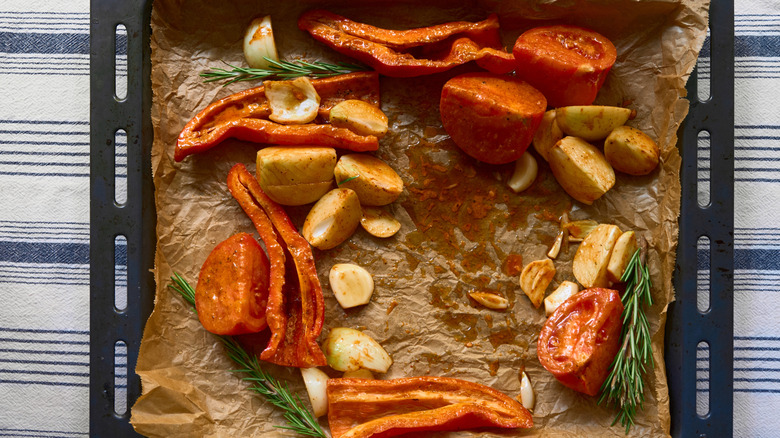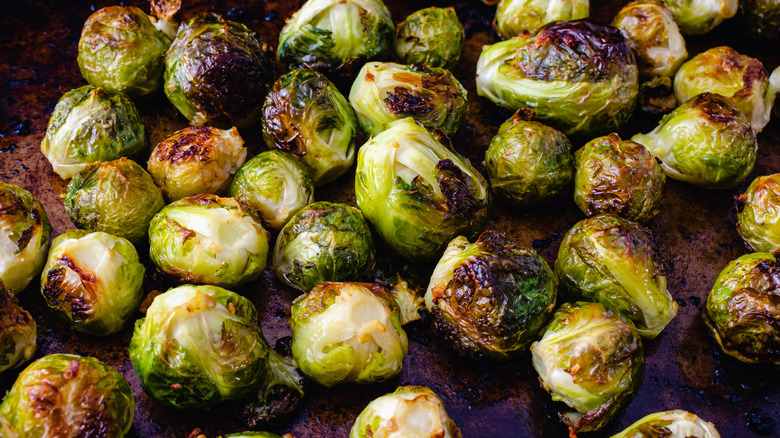Why You Should Avoid Using Parchment Paper When Roasting Vegetables
If you're not a fan of spending your precious time scrubbing caked-on food off sheet pans, then you've probably made good friends with parchment paper — I know I have. It's my go-to for lining any kind of pan, whether baking or roasting. However, after learning what chef Maricel Gentile of Maricel's Kitchen and author of Maricel's Simply Asian Cookbook shared about using parchment paper for roasting, I'll be using a bare pan from now on — you should too!
"Parchment traps steam, which will then soften vegetables instead of letting them caramelize. Direct contact with a lightly oiled metal pan helps them brown and develop sweet, toasty edges we love," explains Gentile.
This makes sense, as I've noticed that when roasting certain veggies, they often come out of the oven looking pale and with some residual moisture left on both their surface and on the sheet pan. I always just blamed it on my oven — which, unfortunately, is one of the most faulty kitchen appliance brands — but it turns out the issue lies in the parchment itself. Parchment paper is treated with sulfuric acid to give it durability and grease resistance. However, that treatment also makes it moisture-resistant, which prevents evaporation and, in turn, inhibits browning.
Bare pan or bust when roasting veggies
But what about effortless clean-up and keeping sheet pans looking good as new without using parchment paper? Maricel Gentile recommends greasing the pan with a thin layer of oil. She says, "If you pre-heat the pan for a few minutes before adding the veggies, they sizzle right away and release easily."
You might be wondering if foil is an option, but foil poses its own challenges, particularly when used for roasting. It can trap steam, and research shows that ingesting foods, especially acidic ones like tomatoes, that have been heated on aluminum foil above 400 degrees Fahrenheit, can have harmful health effects. Since roasting temperatures typically range between 400 and 475 degrees Fahrenheit, following Gentile's advice to use a bare pan thinly coated with oil is your best bet overall. Beyond the health concerns, foil can also tear easily and react with acidic ingredients like tomatoes or lemon, leaving a metallic taste on your food.
Since parchment paper doesn't serve the best purpose when roasting vegetables, at least we know it's highly effective when steaming them. In fact, parchment paper is the unexpected secret to perfectly steamed veggies or poached lean proteins. It locks in gentle heat and moisture without overcooking — the exact opposite of what you want when roasting. And as always, you can still count on it for baking.

